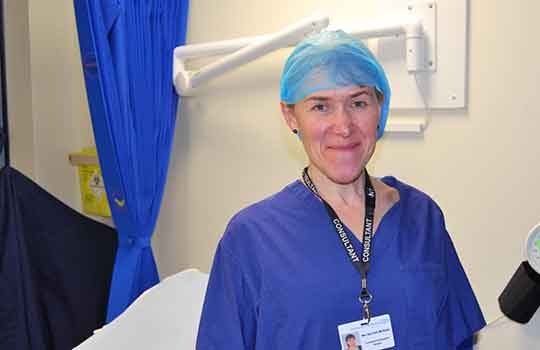Maternal death is defined as “the death of a woman while pregnant or within 42 days of termination of pregnancy, irrespective of the duration and the site of the pregnancy, from any cause related to or aggravated by the pregnancy or its management, but not from accidental or incidental causes.” ICD-10,WHO, 1994. It has been […]
Patrice Baptiste: Mental health issues among medical students
I was extremely saddened when I read the Student BMJ’s article on a survey of 1122 medical students, 343 of whom were suffering with mental health issues. Several astounding figures captured my attention. Firstly, 80% of the 343 students stated that the support they received was poor, if they received any support at all. 167 […]
The BMJ Today: Appraisals, carers, and cognitive enhancement
• What is appraisal good for? As big finance companies such as Accenture are reported to be scrapping formal appraisal systems for their employees, Margaret McCartney, our Glasgow based weekly GP columnist, also takes aim. “Appraisal is a false god. It is a waste of time and a misuse of resources,” she writes, slamming it […]
William Cayley: Life saving science?
This past week saw the interestingly coincident publication of a reanalysis of “Study 329” in The BMJ and an opinion piece in the New York Times, calling for more rapid dissemination of news about “medical breakthroughs.” “Restoring Study 329” reanalyzed data from the (controversial) 2001 study and demonstrated that, lo and behold, paroxetine and imipramine may not […]
Scarlett McNally: Challenging the stereotype of a surgeon

The social media campaign #ilooklikeasurgeon highlighted just how many women surgeons there are working in the UK and around the world. Posting photos of themselves with the caption, “I look like a surgeon,” these women were challenging outdated stereotypes, so often associated with our profession. They were sending a very powerful message to young women […]
Richard Lehman’s journal review—21 September 2015

NEJM 17 Sep 2015 Vol 373 1095 Well, here’s a paper that nearly caused me to stop breathing. It was certainly followed by a sharp intake of breath. Cheyne-Stokes breathing is common in advanced heart failure, and so is central sleep apnoea, which causes frequent periods of nocturnal hypoxia in these patients. Thus continuous positive […]
Andy Young and Sarah Collis: The real Ebola heroes will not be getting medals
We are two of many British doctors and nurses chosen to receive a medal for providing medical care as part of the response to the Ebola crisis in West Africa that left thousands dead and already weak health systems in tatters. Recognising actions that are valuable to our society is important, but we shouldn’t lose […]
Richard Smith: How well are countries doing in responding to the NCD pandemic?

A pandemic of NCD (non-communicable disease) is sweeping across the world, particularly in poor countries, causing much suffering and premature death and swamping health systems. NCD (cardiovascular disease, diabetes, chronic obstructive pulmonary disease, and common cancers) accounts for 63% of global deaths (37 million annually), with 80% occurring in low and middle income countries. Almost […]
Jeffrey Aronson: When I use a word . . . Adam’s throat-bowl
Of the dozen early medical words I found in the Old English dictionary called the Epinal glossary, five were anatomical: átr (atter, gall, or bitterness; Latin Bile); bledrae (bladder; Latin Vessica); næsgristlae (gristle, cartilage; Latin Cartilaga); throtbolla (throat-boll, the Adam’s apple; Latin Gurgulio); thuma (thumb; Latin Pollux) Three of these are still with us: bladder, […]
The BMJ Today: Dengue, refugees, exercise, and the future
• What is dengue fever, and who gets it? What are its causes, and can it be prevented? Our latest clinical review provides an overview of the current evidence, including the diagnosis, management, and complications of this globally important infection. • Blogger Alison Criado-Perez is the medical team leader on board the Phoenix, a search and rescue […]